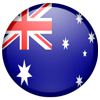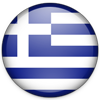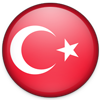United States
Tel: (877) 300-8988
Fax: (877) 664-5450
Email: info@alzinnovation.com
Greece
Tel: (877) 300-8988
Email: info@alzinnovation.com
Turkey
Tel: 0216 57526660216 5757937
staskale@bayindirhastanesi.com.tr
Mailing Address:
Ali Nihat Tarlan Cad. Ertaş Sok.
No: 17 İçerenköy – Ataşehir / İSTANBUL
Singapore
Tel: (877) 300-8988
Email: info@alzinnovation.com
Memory Nurture (Australia)
Call: 0402 943 053
Email: info@memorynurture.com
Website: www.memorynurture.com
Canada
Tel: (877) 300-8988
Fax: (877) 664-5450
Email: info@alzinnovation.com
Out of the Shadows
Alzheimer's Treatment May Help Bring People Back
Joan Hollenberg knows whatit’s like to lose a loved one, bit by bit.
Her father, 87-year-old Calgarian Al Omson, has Alzheimer’s disease, the most common form of dementia.
Alzheimer's is a degenerative disease of the brain that progresses from mild memory loss and confusion to changes in mood and behaviour and an inability to care for oneself.
For 10 years, Hollenberg, who is a therapist, and her family have watched as her father's abilities to function and engage with the people around him have dwindled.
At first, Omson, who was once president of a large wholesale business and flew planes for fun, lost the ability to manage his financial affairs.
Then he became confused at meetings of an executive board he chaired.
Perhaps most difficult for Omson's family, he eventually became withdrawn to the point of sitting at their dinner table with his head down.
"To be a witness to the ongoing decline and demise of a loved one is a very difficult situation.
He's become a shadow person, because that's what happens when you have Alzheimer's," says Hollenberg.
“It’s really heartbreaking.”
Now, thanks to a Calgary-based program called the Ashby Memory Method he started about four years ago, Omson has improved. Although he needs help in “almost everything he does, day to day” and his memory is poor, Hollenberg says her father has regained something they all feared he had lost --- his personality.“He is very loving, affectionate and sweet person and it’s like his nature returned to him. That was very important to us --- that we could see shades of his former self.”
The Ashby Memory Method is based on the idea of “brain fitness” --- keeping the mind fit with a variety of exercises and activities (visit www.alzinnovation.com for more information).
Calgarian John Ashby is the founder of the Alzheimer’s In-ovation Institute, a small, four-person company which began as the Cognitive Retention Therapy Program four years ago.
Ashby is a former paramedic and a certified senior advisor. He worked for two years as the clinical consultant for Hillhurst Neuropsychiatry Clinic, a private practice for people with a range of mental health issues which opened in Calgary in 2001 and moved to Vancouver in 2004.
He developed the Memory Method based on the work of his mother, medical doctor Mira Ashby, who developed a rehabilitation program to help those with brain injuries. In 1978, she founded the Toronto-based Ashby House (now called the Community Head Injury Resource Services of Toronto), which offers adults with brain injuries a transitional living program. In 1984, she was awarded the Order of Canada for her work with the brain injured. (She passed away in 2005.)
John Ashby based much of his program on his mother's work, as well as 22 studies on early intervention strategies for Alzheimer's. The result is a structured program of brain fitness exercises such as word searches and multiple choice questions of popular verbal phrases the patient must complete. (Example: It takes two to: a. screw in a light bulb b. tango c. disco d. have a conversation.)
"It's kind of like treating your brain like your body," says Joan Crockatt, CEO of the Alzheimer's Innovation Institute."You know that if you're out of shape, you need to go to the gym and do exercises. You need brain fitness for your mind."
A caregiver, family member or volunteer can administer the program, working with the patient for an hour twice a week.
The program costs $48 per month and is designed to help people with Alzheimer's, memory loss and other forms of dementia.
What differentiates the Ashby method from other brain fitness games and programs, the company says, is the fact Ashby and his team tailor all the program materials to individuals' interests.
"It has to be relevant, otherwise they'd find it very boring," says Ashby. That means providing clients with exercises and word games that incorporate former passions and interests.
In Omson's case, that means many of the games in his weekly materials incorporate concepts related to flying.
Eventually the activities become more challenging and activity-based. Ashby and Omson, for example, have been building model Airplanes.
Beyond the success she's witnessed, she points to her father's improved score on the mini mental state examination (MMSE) -- a commonly used questionnaire to test cognition – as proof.
"He improved initially and he held his ground for several years," she says, but declined to share the scores.
Ashby says more than 250 people with Alzheimer's across North America have gone through his program, and says improvements on the MMSE are steady in the first three months and then tend to level off for a while, with results unique to each individual.
Eventually though, Alzheimer's -- which causes the brain to continually deteriorate – will overtake gains made on the program.
"Eventually the disease will catch up and pass what we can do here," he says.
The next step for Ashby and his team will be to bolster the method's credibility with clinical studies -- a step they might take with researchers at the University of Calgary.

















